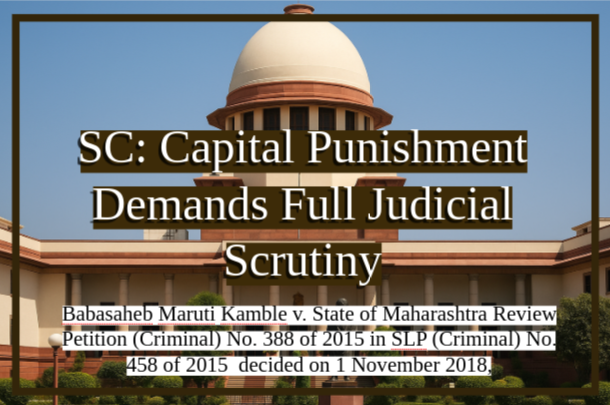SC Upholds Disciplinary Penalty Against CISF Constable
- M.R Mishra

- Sep 8, 2025
- 2 min read
In Const. Amar Singh v. Union of India, the Supreme Court reaffirmed the principle that courts will not lightly interfere with disciplinary proceedings, especially when the delinquent is part of a uniformed force where discipline is the backbone of institutional integrity.

What's The Matter?
The appellant, a constable with the CISF, was charged in 1995 with leaving his camp without proper authorization and allegedly trespassing into civilian quarters.
The inquiry officer found both charges proved, leading to a penalty of reduction of pay to the minimum of the pay-scale for three years, with increments withheld.
On appeal, the penalty was reduced to a one-stage pay cut for two years, but the findings of guilt were upheld.
Before the Delhi High Court, the constable argued that he had indeed obtained an out-pass for a hospital visit.
The High Court partly accepted this, holding that he had permission to leave the camp but misused it by being found twelve kilometers away in a residential colony, detained by civilians until his superiors arrived.
The Court concluded that while the first charge was not fully proved, his conduct still amounted to “unwarranted activity” bringing disrepute to the force. It upheld the modified penalty.
What Court Said?
The Supreme Court endorsed this reasoning, noting that the constable admitted he had not gone to the hospital and had no proof of medical consultation. His presence in the civilian colony, and the fact that his superiors had to intervene to secure his release, was sufficient evidence of misconduct.
Crucially, the Court emphasized that the proportionality of punishment had already been considered by the appellate authority, and the High Court had found no procedural infirmity or violation of natural justice.
By dismissing the appeal, the Court reiterated a long-settled doctrine: under Article 136, it will not act as a second appellate forum to reweigh evidence in service discipline cases, particularly in the armed and paramilitary forces.
The message is clear members of disciplined forces are held to higher standards of conduct, and penalties imposed for actions undermining public trust will not be diluted by sympathy.



Case Title: CONST. AMAR SINGH VS. UNION OF INDIA - C.A. No. 2986/2012 - Diary Number 40208 / 2011 - 29-Aug-2025







Comments